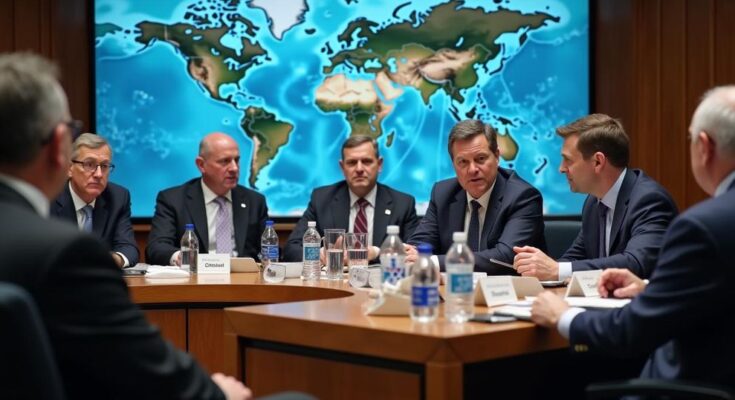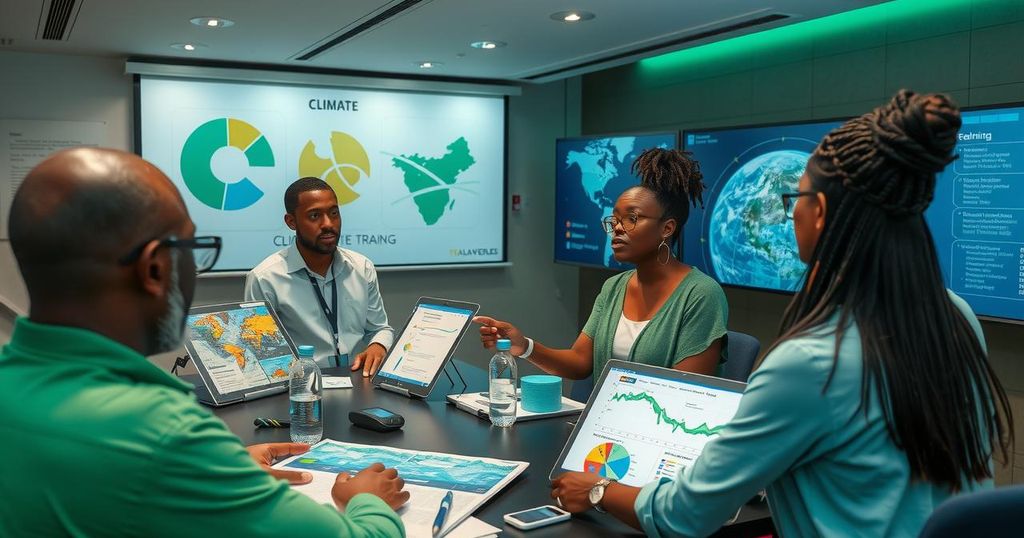Leaders at the forthcoming COP29 summit in Azerbaijan project that hundreds of billions of dollars are realistically attainable for climate financing, a shift from the previous $100 billion commitment made by wealthy nations. As international tensions surrounding climate response rise, developing countries advocate for increased funding to support adaptation and emissions reduction efforts amid escalating climate crises.
Leaders preparing for the COP29 United Nations climate summit in Azerbaijan anticipate that the financing needed to combat climate change could reach “hundreds of billions” of dollars, as they attempt to establish a new financial target replacing the previous commitment of $100 billion annually by wealthy nations to support developing countries. Despite the realization that trillions are required to address both the causes and impacts of climate change, the COP29 presidency chief negotiator, Yalchin Rafiyev, indicated that a more feasible figure for public sector mobilization remains in the “hundreds of billions” range. The necessity for increased climate funding emerges amidst escalating global climate-related disasters, including hurricanes and extreme heat. Developing nations are emphasizing the urgent requirement for additional resources to facilitate adaptation strategies to counteract global warming effects and to diminish their emissions through investments in renewable energy technologies. As per reports, global temperatures have already risen approximately 1.3 degrees Celsius above pre-industrial levels, with indications that 2024 may witness the highest temperatures recorded to date. Experts caution that the target of limiting global warming to 1.5 degrees Celsius is increasingly unattainable without significant enhancements in climate action. Next month, the Baku negotiations are expected to draw participation from over 100 world leaders, including 61 presidents, 38 prime ministers, and 2 crown princes, as of mid-October. In contrast, last year’s climate summit in Dubai had an attendance of more than 160 global leaders. Noteworthy remarks have been made by key figures involved in COP29. COP29 President-Designate Mukhtar Babayev highlighted, “We have done well to narrow down options, and the possible shapes of landing zones are coming into view. But we can clearly see the divides that the Parties still need to bridge.” Furthermore, Azerbaijan’s President Ilham Aliyev underscored the importance of collaboration, stating, “While states have common but differentiated responsibilities, they should put aside disagreements, stop blaming each other and find common ground. We cannot afford to waste time on defining who is guilty for global warming, or who caused more environmental harm.”
The COP29 United Nations climate summit is set to take place in Azerbaijan, with the objective of addressing the pressing issue of climate change financing. Historically, developed nations committed to providing $100 billion annually to support climate initiatives in developing countries. However, as the impacts of climate change intensify and economic conditions evolve, there is an urgent call for an updated financing framework. The discussions highlight a recognition among negotiators that the scale of financial assistance required to combat climate change has escalated to trillions of dollars, although practical goals need to consider current public sector financing capabilities. This summit will involve significant international representation with the aim of achieving concrete actions to mitigate climate change effects and secure necessary funding for future initiatives.
In conclusion, the anticipation surrounding COP29 underscores the critical need for substantial climate financing to address global warming and its impacts. Despite the acknowledgment of a trillion-dollar requirement, leaders are pragmatically considering financing goals in the “hundreds of billions.” The summit aims to foster cooperation among global leaders to expedite funding and collaborative efforts essential for combating climate impacts, with increasing urgency as historical temperature records are at risk of being surpassed in the near future.
Original Source: wmbdradio.com




